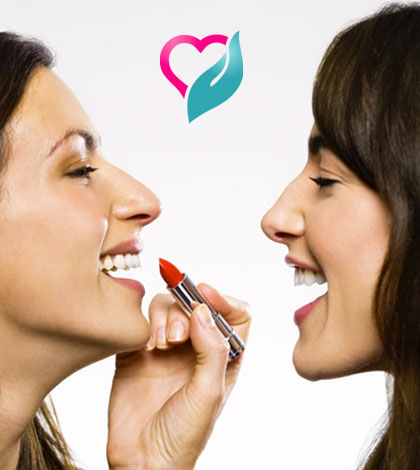All our life we have been taught to share and help people and experience oneness and harmony in life. We have all done this in many forms throughout our lives.
[wp_ad_camp_1]
A friend forgot deodorant or your roommate is all out of soap and you would have gone out and helped them by sharing your’s. But though your parents taught you it is always nice to share, there are some products that should be reserved for your body only. EHC brings a list of toiletries that you shouldn't share with anyone.
Soap bar
Liquid soap is recommended over a bar soap whenever possible to cut down on sharing. A 2006 study cited soap as a source of continuous reinfection in dental clinics. It could be because bars of soap don't usually dry all the way between uses, especially on the bottom, leading to an accumulation of bacteria, fungi and yeast that can be passed from person to person.
[wp_ad_camp_4]
Headwear, hairbrushes and combs
Headwear is an obvious reason for the spread of head lice, but so is making contact with sheets or pillows or couch cushions that have recently been used with an infested person.
Antiperspirant
The sweaty odor comes from bacteria that break down the sweat on your skin. Deodorant, therefore, has certain antibacterial properties to stop the stink before it starts. Antiperspirants, on the other hand, are only interested in decreasing perspiration, so they don't contain the same germ-killing powers. If you share a roll-on antiperspirant, you could transfer germs, bacteria, fungi and yeast from person to person. Stop sharing, or switch to a spray.
Nail clippers
You will not share them at a salon, so don't share them with friend either. If cuticles are cut or pushed back too far, or callused skin is removed, you could have little cuts in your skin, perfect openings for bacteria, fungus, yeast and viruses to be exchanged from tools that haven't been properly sanitized between users. Hepatitis C, staph infections and warts can all be spread this way.
[wp_ad_camp_2]
Makeup
Keep your mascara wands and lipstick tubes to yourself if your friend who wants a swipe has an obvious infection, like pinkeye or a cold sore.
Razors
It probably goes without saying, but you should never share anything that could exchange blood. Since shaving can result in tiny nicks in the skin, viruses and bacteria left behind on razors can enter swiftly into the blood and blood-transmitted viruses like hepatitis B are easily transmissible.
Drinks
Sharing a water bottle or a cup can lead to saliva swapping. The germs that cause strep throat, colds, herpes, mono, mumps and even meningitis can all be exchanged with a seemingly harmless sip.
Earrings
When you poke an earring through your ear, you may make a little break in the skin, allowing viruses from the last wearer to enter the blood. Though most people inserting earrings won't be drawing blood, there is still potential risk if you don't clean your jewelry between wearers.
Earphones
Frequent earphone use seems to up the amount of bacteria in your ears, according to a 2008 study. That bacteria could spread to another ear if you share headphones, and could lead to ear infections.
Food
If your friend offers you a bite of her cheesecake, hamburger, etc, use a clean fork or other utensil to cut off a bite from an uneaten portion. Germs and bacteria can spread through fingers, used spoons and knives, and through saliva.
These hygienic practices make sure that you don’t go down will illnesses when you have other important things happening in your life and you want to enjoy them with your loved ones.
[wp_ad_camp_3]
Image courtesy: channel4.com , coupay.com ,
























